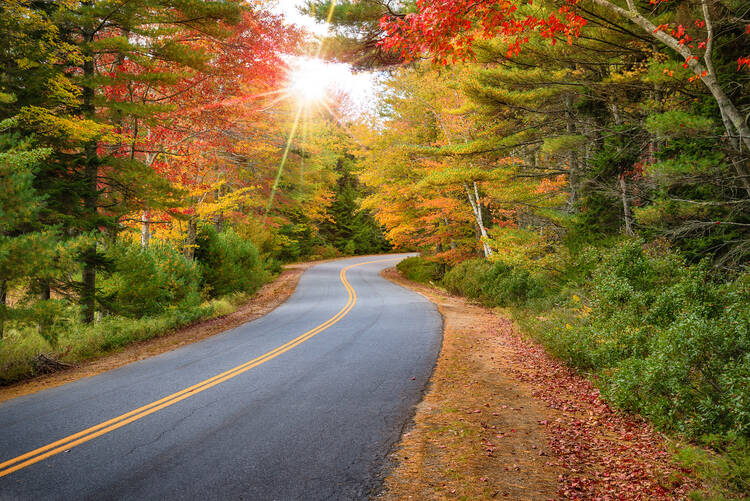Two for the Road
The best travel writing is usually about something else—not just been-there and saw-that. There is an inner voyage, even for the atheist, a spiritual experience—if not an encounter with God at least a glimpse into the mystery of life embodied in crumbling walls or crashing waves. The tourist joins a group, rides a bus, hires a guide, buys souvenirs, sends postcards, takes pictures; the traveler carries his reporter's notebook, walks the boulevards, parks and museums alone, scribbles his notes with wine at dinner in a small outdoor café and scours the local newspapers, even if he can't read the language, for some sense of how this town relates to the rest of the world.
The travels of E. B. White (1899-1985), the New Yorker essayist and coauthor, with William Strunk Jr., of The Elements of Style, seldom took him far from his several homes in Maine, Florida and New York. In the 1940s home was Turtle Bay, on New York's East Side, and the United Nations was built in his neighborhood; later he returned to his little farm in North Brooklin, on the Maine coast. This was the setting of "Death of a Pig," about the passing and burial of White's pig, which he was supposed to slaughter for a holiday meal. Instead, he nursed it through a fatal "hemorrhagic infarct" as if it were his own child.
Time is a character in Once More to the Lake, in which he takes his young son to the same lake camp to which his father took him. The smell of the bedroom and the sound of the boy sneaking out to row the boat along the shore sustains the illusion, the "creepy sensation," that he is his son and also that he is his own father—that "there had been no years." In the last paragraph, as he witnesses the boy, skinny and bare, pull up his wet bathing suit around his vitals, White suddenly feels "the chill of death."
In his best-known essay, This Is New York, in 1948 Grand Central Terminal has become honky tonk, the great mansions are in decline, and there is generally more tension, irritability and great speed. The subtlest change is that the city is now destructible. A single flight of planes no bigger than a flock of geese could end this island fantasy, burn the towers and crumble the bridges. But the United Nations will make this the capital of the world. The perfect target may become the perfect "demonstration of nonviolence and racial brotherhood." A block away in an interior garden was an old willow tree. This tree, symbol of the city, White said, must survive.
Last week I walked to the U.N. headquarters and found them guarded, surrounded and barricaded by a high, post-9/11 fence. A block away, behind 10 brownstones, the tree survives.
In 1939 White drove up to Walden Pond and wrote an imaginary letter to Henry David Thoreau (1817-62), his kindred spirit, in which he explained what it is like to drive a car: "'the whole body is one sense, and imbibes delight through every pore,' if I may coin a phrase"—and that someone had left beer bottles on the site of his original cabin. I have visited Walden three times and swam in the pond, thrilled to recapture the sensations that inspired Thoreau's prose. The setting itself is not spectacular—just simple, unspoiled and awesome. It sets the scene for prose like this: "I went to the woods because I wished to live deliberately, to front only the essential facts of life, and see if I could learn what it had to teach, and not, when I come to die, discover that I had not lived." A short walk down the road, Thoreau rests in Sleepy Hollow cemetery, his little stone marker, no bigger than an envelope, embossed Henry, guarded by a cricket perched on top.
Thoreau was an eccentric but not a recluse. He paddled the Concord and Merrimac rivers, traveled to Maine, Staten Island, Manhattan and Minnesota, writing as he went. He walked to Concord nearly every day and loved to talk. To anyone who listens, he is talking still.
This article also appeared in print, under the headline “Two for the Road,” in the January 30, 2012, issue.










